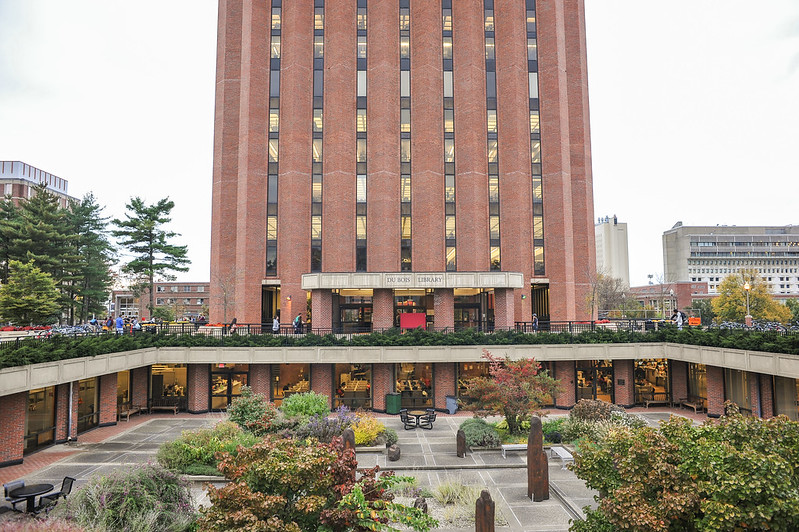
Many of us have had to debate in class at some point, whether it was in high school or college. Sometimes, you got to be on the side you agreed with, making your assignment that much easier. Other times, you had to be on the side you didn’t agree with, making your assignment a true challenge. Why? Because what we agree with comes easily to us, while opposing opinions pose a more difficult, complex problem that we often do not want to tackle unless we are forced to do so.
So you go ahead with your debate, representing the side that you do not agree with. You do it for the sake of your grade, but you know that you don’t agree with the view you were assigned to represent, nor do you believe that you ever will agree. We will sometimes think, “How can someone believe what they do?” We write them off and block ourselves from trying to understand them.
Also in school, you learn how to form arguments. A major component is anticipating the counter-argument, especially in class debates. So you do all of your research to prepare yourself to dispute the other side’s claims.
But real-life arguments are different than those you have in a classroom. In arguments about beliefs, neither side is declared the “winner,” nor do people change their opinions, even if they know what the other side believes.
No one wins in arguments, even though many of us hate losing (myself included). But the key to understanding a person’s point is to really think like them.
I was recently helping a friend of mine edit an article for The Massachusetts Daily Collegian. He and I have very different views, and in fact we are polar opposites on many issues. A few weeks ago, he asked me to take a look at his article because I disagreed with his stance on the issue, and I agreed to work on it.
As I opened the email with his attachment, I was prepared to go full-force while editing his piece, picking his argument and article apart because I strongly disagreed. But, as I read and researched his claims as well as counter-claims, I started to put myself in his position. I started to think about more than just counter-arguments. I realized that I didn’t have to point out everything that I deemed “wrong” in my opinion, and I found myself better understanding and identifying with his point of view.
I found myself using sources to help him strengthen his article, as well as working with him on points that he could’ve gone more in-depth about. I learned so much more about the issue as I did this background work—concepts that I would not have encountered by just simply pointing out the faults in his argument, something that many are inclined to do when met with an opposing opinion.
As a result, I learned something new. Maybe my opinion did not completely change, but I allowed myself to not try to be right or overpower another with my opinion. I understood why he believes what he believes.
It’s not one side against the other. We should be reaching across to learn from the other side.
So go read something you may not agree with. If it is well-written and well-supported, you should understand why that person came to that conclusion. This will also challenge you to question why you believe what you do and based on what information from where.
So next time you are given the side that you don’t agree with in class, go full-speed ahead into the material. You might surprise yourself with what you learn about the topic, and how that may change your viewpoint.
Emilia Beuger is a Collegian columnist and can be reached at [email protected].



















Nitzakhon • Sep 13, 2017 at 10:30 am
Congrats on taking a step towards being open-minded.
Next up, understanding that too many people hold to this: “I believe X, therefore I am a good person…” This kind of fundamental statement keeps people from entertaining other views. I love this quote:
“Sometimes people hold a core belief that is very strong. When they are presented with evidence that works against that belief, the new evidence cannot be accepted. It would create a feeling that is extremely uncomfortable, called cognitive dissonance. And because it is so important to protect the core belief, they will rationalize, ignore and even deny anything that doesn’t fit in with the core belief.”
– Frantz Fanon
So, people will rationalize, ignore, and even deny evidence that contract their views, because their views indicate they are “good people”. To change them, even in the face of new information, would mean undermining their views of themselves as “good”.
SittingBull • Sep 13, 2017 at 9:51 am
Excellent! Someone at UMASS is actually learning! Unfotunately, most people in the world are ill-informed (if informed at all) about virtually every important issue on which they hold a strong and intractable opinion. It is this lazy, follow-the-herd mentality which media outlets (MSNBC and CNN on one side; Fox and Breitbart on the other) have exploited not only for ratings/financial gain, but also to completely polarize the entire society. Extremists now control a majority of important arguments on both sides, and the silent majority sits and suffers at the buffoonery of it all. It is rare that, in a political debate, one side is ever completely correct. And there is such a thing as compromise (as in business or litigation) where no one gets everything they want, but everyone gets something they want/need.
Sadly, in debates of national or existential consequence, the only people who are wrong (read: most people) are the ones who form immediate and immovable opinions and principles based on a limited set of facts that entirely support their own point of view/self-interest. Unfortunately, that will never change.